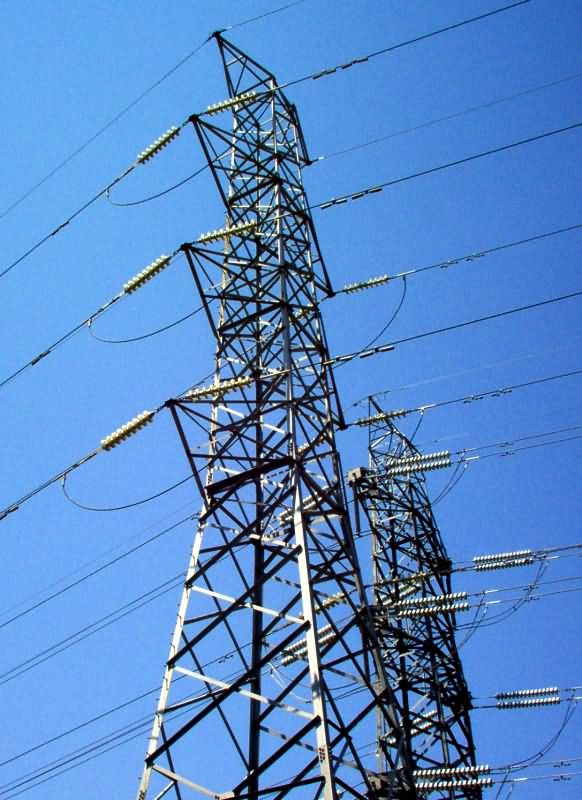Climate Change
Solar power in North Carolina
How the solar industry became successful in North Carolina
When it comes to politics, North Carolina is not California. California is regularly and consistently Democratic at the state and national level. North Carolina is a swing state in presidential elections, has a Republican majority in its delegation to the House of Representatives, and has a state government currently dominated by Republicans. And when it …
Continue reading “Solar power in North Carolina”
CONTINUE READINGThe Role of Permits in the Regulatory State
The structure of permitting programs can make a big difference for the implementation of environmental law
Author’s Note: The following post is co-authored by Eric Biber and J.B. Ruhl, the David Daniels Allen Distinguished Chair of Law and the Co-Director of the Energy, Environment, and Land Use Program at Vanderbilt Law School. This post is cross-posted at Reg Blog. Reg Blog, supported by the U Penn Program on Regulation is an …
Continue reading “The Role of Permits in the Regulatory State”
CONTINUE READINGWhose Benefits Count?
EPA is right to include climate impacts on foreign countries in its cost-benefit analysis of regulations.
When a regulation benefits people outside the U.S., should those benefits be counted? Or should a cost-benefit analysis include only positive and negative domestic impacts? As a recent paper by Ted Gayer and Kip Viscusi highlights, EPA has been counting the benefits of restricting carbon emissions for the entire world, not just the U.S. …
Continue reading “Whose Benefits Count?”
CONTINUE READINGUpdate: U.S. Supreme Court Denies Review in California Low Carbon Fuel Standard Case
Justices Decline to Address Constitutionality of LCFS
The U.S. Supreme Court today denied certiorari in closely-watched cases in which the constitutionality of California’s Low Carbon Fuel Standard (LCFS) was being challenged. The LCFS is, in turn, an integral part of the state’s multifaceted strategy to reduce California’s aggregate greenhouse gas emissions as required under AB 32, the state’s landmark 2006 climate change …
CONTINUE READINGHow Scalia Might Have Ended the Best Hope of Killing EPA’s Greenhouse Gas Rules
The Supreme Court may have just eliminated a major legal and political risk to EPA’s greenhouse gas regulatory program
A couple of folks have already written about the UARG decision, and there is surely more to understand about the implications of the Scalia majority decision for future EPA greenhouse gas regulatory efforts. But I want to highlight one key implication of the decision for EPA’s overall greenhouse gas regulatory program. First, it is important …
Continue reading “How Scalia Might Have Ended the Best Hope of Killing EPA’s Greenhouse Gas Rules”
CONTINUE READINGBreaking News: U.S. Supreme Court Renders Split Decision in Major Climate Change Case
The U.S. Supreme Court today issued its long-awaited decision in Utility Air Regulatory Group v. Environmental Protection Agency, the justices’ third encounter with climate change law and policy. In a Solomonic ruling, the Court ruled that EPA lacks authority to require the operators of “stationary sources” of greenhouse gas emissions (power plants, factories, etc.) to obtain …
CONTINUE READINGThe 2014 Midterm Elections and the EPA Greenhouse Gas Rule
Why Republicans probably won’t be able to eliminate the EPA rules before 2016
I wrote earlier about why the 2016 Presidential election will be the election that matters (politically) for the long-term success of the new greenhouse gas rules proposed by EPA. (The status of legal challenges is a different question.) I want to elaborate a little more now about why the 2014 midterm elections are pretty much …
Continue reading “The 2014 Midterm Elections and the EPA Greenhouse Gas Rule”
CONTINUE READINGA Bailout By Any Other Name…
Weak environmental laws are another form of bailouts for private industry
Bailouts – the payment of public funds or resources to rescue or support a private enterprise – are politically very unpopular. The primary challenger who defeated Republican House Majority Leader Eric Cantor in Virginia excoriated Cantor for supporting big banks in the wake of the financial crisis. The bailout of banks after the crisis that …
Continue reading “A Bailout By Any Other Name…”
CONTINUE READINGCompiled Resources on the “Clean Power Plan” Proposed §111(d) Rule
All LegalPlanet resources on regulation of GHGs under 111(d), plus critical EPA resources and other valuable analyses
Today, EPA officially published the Clean Power Plan, the agency’s proposed rule to regulate power plant greenhouse gas emissions under Clean Air Act § 111(d), initiating a public comment period that will close on December 1, 2014. I have taken this as an opportunity to compile all of the various LegalPlanet resources on regulation of …
Continue reading “Compiled Resources on the “Clean Power Plan” Proposed §111(d) Rule”
CONTINUE READINGPART IV – EPA’s Proposed 111(d) Rule: Some Insights & Open Legal Questions
The fourth and final post in a series offering some initial insights and observations, and posing several open legal questions related to EPA’s proposed 111(d) rule.
This is the fourth and final post in a series offering some initial insights and observations, and posing several open legal questions related to EPA’s proposed 111(d) rule. (See Parts I, II, & III.) Over the course of this series, I welcome our knowledgeable and insightful LegalPlanet audience to join the dialogue in the comments. …
Continue reading “PART IV – EPA’s Proposed 111(d) Rule: Some Insights & Open Legal Questions”
CONTINUE READING





